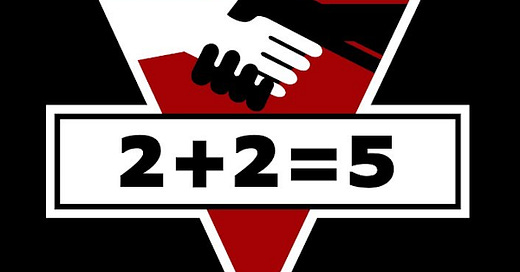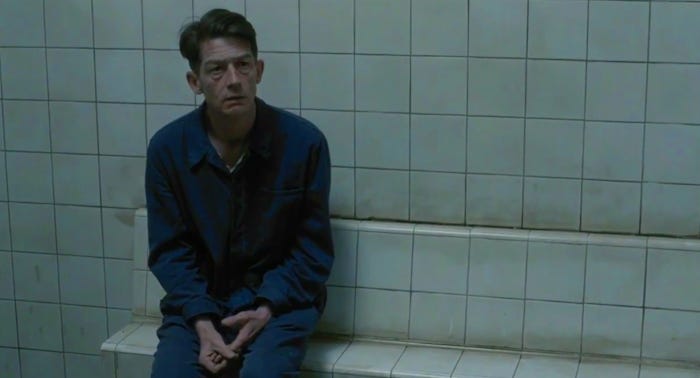The problem with problem solving
Formal problem solving is a curse. I’ve spent fifteen years trying to understand how a problem is solved rationally. How to identify and resolve contradictions. This seems to have been the objective of the Russian, Altshuller. He developed an algorithm for problem solving that I find very powerful. The TRIZ framework is not merely a mechanism to break your psychological inertia and provoke you to good ideas. Altshuller's work attempts to prove that the question answered is the correct question, and to prove that the solution developed is the best solution.
In the early days of solving a problem, you don’t necessarily have much to go on. You may not have many numbers to prove your point. And besides, it’s very difficult to use the scientific method alone to determine what should be valued.
Early concepts are constructed from a rhetorical framework that must fit together without illogical gaps. If a contradiction remains, you must restructure your solution. If your new structure has introduced a new harm, you must restructure your solution. You must keep going until the rhetorical argument works.
Do this often enough and eventually everything is viewed through this lens. Everything has to make sense. Every contradiction you see must be resolved. Any contradictions that remain must be queried. It can take a long time to reach a consensus, and even then, some contradictions may remain. You will always find me at the vanguard of this inquiry, deploying the problem solving tools to the best of my abilities.
Querying positions, cross referencing differences of opinions both between people and as time marches on, defending the barricades of logical solution building. A colleague once compared me to Socrates, which I foolishly took as a compliment. My colleague corrected my misapprehension by noting that this comparison starts, and ends, at his death.
It seems that a greater majority of the jury sentenced Socrates to death than the majority that originally convicted him. This suggests that some of the jury may have thought him innocent, but definitely thought society would be better off if he was executed. More people wanted him dead than thought him guilty.
Socrates must have been a very annoying man.
And if you apply formal problem solving to every contradiction that you see, the hemlock he drank, you’ll drink every day. For the world today is full of contradictions. It always has been. But with a sudden and dramatic increase in connectivity and access to information from all over the world, the contradictions that assail humanity are writ large on an ironically tiny device.
You can see them all at once, and to a professional problem solver this is murderous. You are surrounded by contradictions that are maddening in their quantity and in their cavernous depth. Under these circumstances, customer engagement must be employed. Get out of the building. Ask those that know.
I offer a gift. A warning. Don’t do this. Asking a question may seem an innocent, neutral act. In fact, you might think that seeking the answer from others is surely a virtue. To ask others a question is to openly acknowledge your own ignorance, compared to their expertise. This is a foolish assumption, because a question transforms its nature when an unresolved contradiction is encountered.
When those asked have no answer that can satisfy our formal frameworks, the trouble starts. I could offer numerous examples of positions people adopt that contain enormous contradictions at their heart. Look to the world of politics for an ocean of examples whilst I suffice with a fictional alternative.
You look out into the world and you see it in all its contradictory glory. So many problems, each accompanied by so many answers from so many voices. For example, what number might result if you add 2 plus 2? You search for the answer in the market square of ideas and find that the prevailing opinion is 3.
Sometimes it’s 5. People aren’t really sure and a tremendous argument rages across society, so people are very happy to tell you it’s five. Or perhaps three. The trouble arises if you see the world through the lens of formal problem solving. This answer may not satisfy the framework you’re using. A contradiction might remain.
You might be provoked to ask a further fatal question. Why does 2 plus 2 equal 5? Note that you’re not committing Winston’s crime. You’re not rudely interjecting with a bold claim that freedom is the freedom to say that 2 plus 2 equals 4. The question itself, in fact, accepts that it may very well be 5. You could accept the answer as 3 and ask the same question.
Why does 2 plus 2 equal 3? If the answer is indeed 3, why is it 3? But if those questioned offer an answer that does not stand up to the scrutiny you employ to engineer the world, look at the implication. You may very well be seeking the answer in good faith, but identifying a contradiction in the answer is not always interpreted as a benefit.
If those offering an answer exhibit a contradiction, this contradiction will be interpreted as hypocrisy.
You don’t intend to say this. You don’t mean this at all. But you’ve said it all the same, and people will react accordingly. Your question will transform before your eyes from an honest enquiry into an accusation.
Your query will be interpreted as a willing naivety acting as a trap. The exposure of a contradiction will be interpreted as a trick. I guess it is a trick. It’s an amazing trick that should be confined to the lab.
A firmly held contradiction can be interpreted as entrenched hypocrisy. If you expose an interesting contradiction in an argument you’re not on the road to a better understanding.
You’re basically accusing someone of being a hypocrite. You may be genuine in your desire to know why 2 plus 2 equals 5. And you may genuinely believe that the person you are asking has the answer. But in the current climate, if you ask why 2 plus 2 equals 5, you won’t receive an answer. You may actually receive a label.
After all, it’s obvious why 2 plus 2 equals 5. Everyone to the right of 4 says it’s 5. It’s simple common sense. It’s always been 5. That’s why 2 plus 2 equals 5. If you don’t see it, you must have no common sense nor any respect for tradition. If common sense doesn’t obviously explain why 2 plus 2 equals 5, then perhaps you’re a 5 Denier.
It’s also obvious to those to the left of 4 why 2 plus 2 equals 3. It feels right. If your feelings don’t inform you why 2 plus 2 equals 3, then you have no heart. Perhaps you don’t feel it because those feelings are overwhelmed by your fear that the answer might indeed be 3. Perhaps you’re simply 3 Phobic.
Surprisingly, despite your dogged inquiry, people may offer you the credit of being intelligent, having common sense, and having a heart. Unfortunately, your unwillingness to understand why 2 plus 2 equals 5, or perhaps 3, must therefore be a deliberate and obtuse position. An act of Loki himself provoking people for fun.
At this point, you can’t win.
In fact, you may even encounter laws that prohibit asking the question at all. The marketplace for honest inquiry may very well be about to collapse, so this problem may soon solve itself. In the meantime, put simply, if you extend formal problem solving skills into questions that demand an emotional value judgement, you will not find any answers that satisfy your inquiry.
If you have an interest in solving engineering problems with formal methods, you may ultimately be unable to see the world at all, except through this lens. If you ask direct questions using these skills, you may actually gain a debilitating social disease. You may gain some delightful new labels, not for making any claims one way or the other, but for asking people why their answer is the answer.
For asking people why their truth is the truth. Take this path and you may not be able to see the world in any other way than a mess of unresolved contradictions that are endured with millions of personal little fictions.
Words don’t mean what they used to mean, and public opinion changes as quickly as those who hunger for power need it to.
None of it will make sense, and none of it will stand the slightest formal scrutiny. If you uncover a contradiction, all you will find is another, underneath.
It’s contradictions all the way down.
We all have few defences against those ideologues bellowing their wares to obscure their ulterior motives, whilst the majority of us are stuck in the middle doing our best just to keep up. Many are simply surviving on what feels right. Direct, rigorous questions based upon powerful engineering methodologies will only antagonise them.
So, this is my advice. If you have internalized the formal rhetoric of engineering problem solving and use it to understand the world, leave the tools in the lab.
Two plus two equals five.
Or perhaps three.
Just don’t ask why.
Allow people their comforts.
We flatter ourselves.
An anticipation builds in the crowd as they eagerly await the appearance of their idol. The air is filled with a contagious excitement. He steps up to the microphone, and the crowd erupts in a cacophony of cheers, screams, and applause. The noise is overwhelming.














